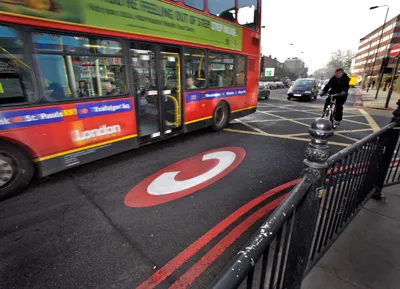Siemens claims the use of its technology to enforce London’s congestion charge has been critical to achieving a 20% reduction in traffic and traffic jams being cut by a third in the first 10 years of the charge being in operation. The number of vehicles being driven in London each day is now said by the company to be down by 60,000 compared to 2003. A Siemens spokesperson said: “London's congestion charge is a successful model, showing how chronically congested urban areas can get traffic moving again. Traf
February 18, 2013
Read time: 2 mins

The number of vehicles being driven in London each day is now said by the company to be down by 60,000 compared to 2003.
A Siemens spokesperson said: “London's congestion charge is a successful model, showing how chronically congested urban areas can get traffic moving again. Traffic jams are reduced, public transport speeded up, and the quality of air improved. With the congestion charge system, pollution in central London has fallen by 150,000tonnes of CO2 annually.
“Siemens technology makes London's congestion charge possible: Intelligent video systems register license plates by means of Video Scene Analysis and, following a check against a database, recognise whether the congestion charge has been paid.”
Picture caption: Siemens press picture – Siemens has played a leading role in London’s 10-year-old congestion charge network








